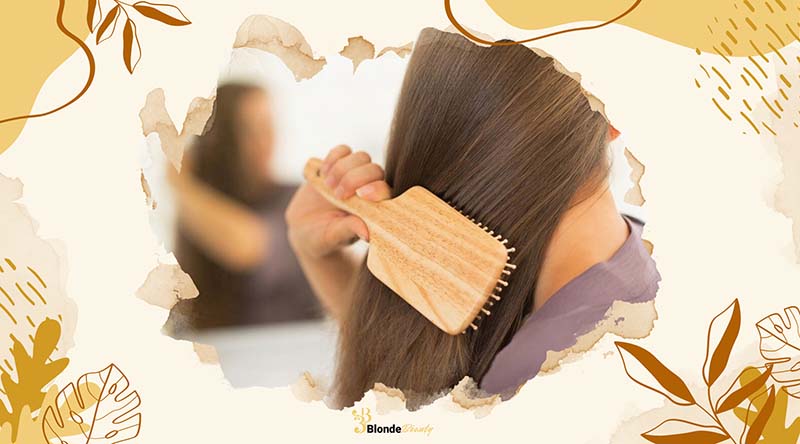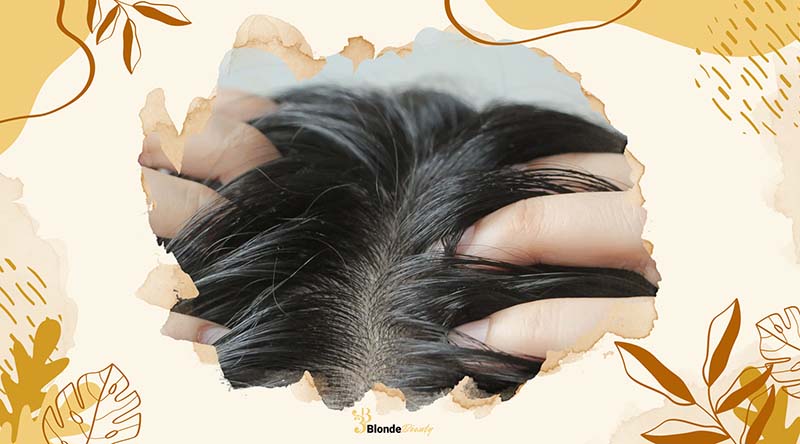Rosemary, scientifically known as Rosmarinus officinalis, is widely celebrated for its natural anti-inflammatory properties, antibacterial effects, and cell protection abilities. Recently, it has gained traction on social media as the key ingredient in a hair growth tonic dubbed “rosemary water”.
Although there is no concrete scientific research confirming the efficacy of rosemary water for hair growth, preliminary evidence suggests that rosemary could enhance scalp health and potentially foster hair growth.
In this article, we will explore the question “Is Rosemary Water Good for Your Hair?” as we examine the claims surrounding the improvement of scalp and hair health through rosemary water.
Notes:
- Reduces Inflammation: Rosemary can help lower scalp inflammation, which is often a cause of hair loss.
- Protects Hair Follicles: The antioxidants in rosemary might shield hair follicles from damage caused by free radicals.
- Fights Harmful Bacteria: Rosemary’s properties can help keep the scalp clean, potentially preventing problems like dandruff that can stop hair from growing.
- Usage Tip: When using rosemary water, make sure to dilute it properly to avoid any irritation to the scalp.
Is Rosemary Water Good For Your Hair?
Rosemary water offers several benefits that support a healthy scalp and hair follicles, promoting hair growth. Its anti-inflammatory and antimicrobial properties can help reduce conditions like dandruff and scalp psoriasis.
According to William Gaunitz, a certified trichologist and founder of the hair-growth brand Advanced Trichology, rosemary may aid hair growth by acting as a cleanser and antiseptic for the scalp. “Rosemary water can be beneficial for people suffering from scalp inflammation, which is caused by excess oil and various microorganisms like parasites, fungi, and bacteria. It helps cleanse the scalp and eliminate some of these inflammation-causing microorganisms” he explains.
Research also supports the idea that rosemary water may promote hair growth. In a 2015 randomized controlled trial, rosemary oil was found to be as effective as minoxidil (the active ingredient in Rogaine) in increasing hair growth after six months of use.

Benefits of Rosemary Water for Your Hair
Rosemary water has become a popular natural remedy for various hair concerns. Its natural properties offer a range of benefits from enhancing hair growth to improving hair texture. Here’s how rosemary water can be beneficial for your hair:
Helps Hair Grow Faster
Rosemary water is known for its ability to stimulate blood circulation to the scalp. This increased blood flow nourishes hair follicles, promoting faster and stronger hair growth.
Studies suggest that rosemary oil, which can be used to make rosemary water, can be as effective as minoxidil, a common hair growth treatment, in treating hair loss.

Helps Fight Scalp Dandruff
The antifungal and anti-inflammatory properties of rosemary help combat dandruff. Regular use of rosemary water can maintain scalp health by reducing the yeast that contributes to dandruff and soothing scalp irritation that often accompanies flaking and itching.

Makes Your Hair Smoother and Smoother
Rosemary water can also enhance the overall texture of your hair, making it smoother and more manageable. The nutrients in rosemary help to coat hair follicles, reducing frizz and adding a natural shine.
Regular rinsing with rosemary water after shampooing can leave your hair feeling softer and silkier.
How to Use Rosemary Water for Hair?
There are a few ways to apply rosemary water to your hair:
Direct Application
Pour the rosemary water into a spray bottle and spritz it onto your dry hair. Use a brush to gently distribute it from the roots to the tips.

Post-Shampoo Application
Apply the mixture to freshly shampooed hair while it’s still wet. Comb through and dry as usual.
Deep Hydration
For a deep hydration treatment, generously apply rosemary water to your hair and let it sit for a few minutes to soak into the strands. Rinse it out, dry your hair, and then apply hair oil to seal in the moisture during styling.
Recipe for Making Rosemary Water
Rosemary water is incredibly easy to make. With just two ingredients and a few minutes at the stove, you can create a fresh batch that will have your hair growing long and shiny in no time.
Ingredients:
- 3 cups of water
- 2 sprigs of fresh rosemary
Instructions:
- Bring all 3 cups of water to a boil.
- Add both rosemary sprigs to the boiling water.
- Remove the pot from the heat and cover it with a lid.
- Let the rosemary steep in the water until it cools completely to allow the water to absorb the herbal properties.
When your rosemary water has cooled, transfer it to a jar or spray bottle. The mixture can be stored in the fridge for up to 2 weeks. Consider making a bigger batch to have on hand when your hair needs a boost.
How Often to Use Rosemary Water for Hair
To fully benefit from rosemary water, incorporate it regularly into your hair care routine. Begin by using it two to three times a week and adjust the frequency based on your needs. It may take a few weeks for you to observe any noticeable changes in your hair.
Keep in mind that individual responses can vary. If you experience any irritation from the rosemary water, consider using a customized scalp mask that might provide similar benefits without the discomfort.
Potential Side Effects of Using Rosemary Water for Hair
Rosemary water is generally safe to use, and adverse reactions are rare. However, it’s important to be aware of potential issues:
Contact Dermatitis
If you experience symptoms like skin redness or irritation, stop using rosemary water immediately and consult a healthcare provider.
Allergy or Hypersensitivity
Do not use rosemary water if you have known allergies or hypersensitivity to rosemary or plants in the Lamiaceae or Labiatae family (mint).
Pregnant or Breastfeeding
Rosemary is known to have potential hormone-altering effects and has not been thoroughly tested on pregnant or breastfeeding individuals. For this reason, its use is not recommended during pregnancy or while breastfeeding.
Possible Hair Darkening
Some users have reported their hair darkening or staining due to the color of rosemary water. For those with lighter-colored hair or concerns about potential staining, use fewer rosemary leaves to create a less concentrated infusion, or avoid using rosemary water altogether.
Conclusion
Rosemary water offers a natural method that could enhance hair growth and improve scalp health.
Although further detailed research is necessary, preliminary studies and numerous anecdotal accounts suggest its potential benefits. Nonetheless, given the varied causes of hair loss, results can differ widely from one person to another.
We encourage you to share your own experiences with rosemary water on BlondeBeauty as your insights can help others understand how it might work for different hair types and conditions.

Laureate Professor Clare Collins
Professor Clare Collins is a leading expert in nutrition and dietetics at the School of Health Sciences, part of the College of Health, Medicine and Wellbeing. Her work is changing the way we think about food and health. She grew up as one of nine children and was the first in her family to finish high school and go to college. This background gave her a strong work ethic and a deep appreciation for seizing opportunities.
As the Director of the Hunter Medical Research Institute’s Food and Nutrition Program and a recipient of three NHMRC Research Fellowships, Professor Collins is making a big difference in public health. She focuses on helping people who are often overlooked, using new technologies like apps and online programs to improve their nutrition and reduce the risk of chronic diseases.
Professor Collins is well-respected and has been recognized as a Fellow in four major health and science organizations. She leads a diverse team of experts, including dietitians, computer scientists, and engineers, working together on global health projects.
Her achievements are impressive. She has received over $29 million in research funding, published more than 450 papers, and helped 35 PhD and Master’s students complete their degrees. She’s also active in sharing her knowledge with the public. She has developed tools like the Australian Eating Survey and the Healthy Eating Quiz, and she often appears in the media to talk about nutrition.
PUBLISHED ARTICLES
- Collins, C. (2019). “The Effect of a Pilot Dietary Intervention on Pain Outcomes in Patients Attending a Tertiary Pain Service.”
- Collins, C. (2022). “Variation in cardiovascular disease risk factors among older adults.”
- Collins, C. (2022). “Evaluation of an online intervention for improving stroke survivors’ health-related quality of life: A randomised controlled trial.”
These articles show Professor Collins’s commitment to understanding how better nutrition can improve health. Her work is important for researchers, doctors, and anyone interested in healthy living.
